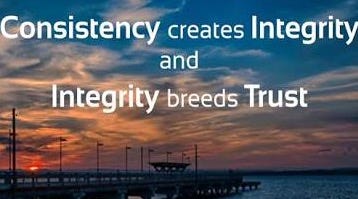
Knowledge: The Only Currency That Matters
Introduction
Ever feel like you’re running on a treadmill, working hard but not really getting anywhere? We chase promotions, bigger houses, fancier cars, all the while feeling like something’s missing. What if I told you the real key to unlocking your potential, to truly thriving, isn’t in your bank account, but in your head? I’m talking about knowledge.
Forget stocks, bonds, or Bitcoin for a minute. Knowledge is the only currency that truly appreciates over time. It’s the only asset that can’t be taxed, stolen, or depreciated. It’s the foundation upon which everything else – success, innovation, and personal fulfillment – is built.
Explanation of the Problem
Let’s face it, in today’s rapidly evolving world, ignorance isn’t bliss. It’s a liability. In the short term, a lack of relevant knowledge translates into:
- Stagnation in your career: Are you stuck in a dead-end job, watching colleagues with sharper skills get promoted while you’re left behind? The hard truth is, skills become obsolete quickly. If you’re not constantly learning and adapting, you’re essentially signing up for career purgatory.
- Missed Opportunities: Imagine stumbling upon a groundbreaking idea but lacking the foundational knowledge to develop it. Or picture an incredible investment opportunity passing you by because you didn’t understand the market dynamics. Knowledge is the lens through which we identify and capitalize on opportunities.
- Poor Decision Making: From personal finances to career choices, uninformed decisions can have devastating consequences. Knowledge empowers you to make smarter, more strategic choices, minimizing risks and maximizing potential rewards.
The long-term consequences of neglecting knowledge are even more profound. We’re talking about:
- Irrelevance in the Workforce: As technology continues to disrupt industries, entire job categories are disappearing. If you don’t actively cultivate new skills, you risk becoming obsolete and unemployable.
- Limited Personal Growth: Knowledge is the fuel for intellectual curiosity and personal exploration. Without it, we become stagnant, resistant to new ideas, and ultimately, less fulfilled.
- Regret and Missed Potential: Imagine looking back on your life and realizing you never reached your full potential simply because you didn’t invest in yourself. That’s a heavy burden to carry.
Solutions
The good news is, it’s never too late to invest in your intellectual capital. Here are some practical strategies to start building your knowledge bank:
- Embrace Lifelong Learning: Make learning a habit. Dedicate even just 30 minutes a day to reading, listening to podcasts, or taking online courses. The key is consistency.
- Example: Consider platforms like Coursera, edX, or Khan Academy that offer a vast library of courses from top universities and institutions, often for free or at a reasonable cost.
- Cultivate Curiosity: Ask questions, explore new subjects, and never stop being curious about the world around you. Curiosity is the engine of learning.
- Example: Read widely, even outside your field of expertise. A software engineer might benefit from reading a book on psychology to better understand user behavior.
- Network with Knowledgeable People: Surround yourself with people who are smarter than you, and actively seek out mentors and advisors. Learn from their experiences and insights.
- Example: Attend industry conferences, join professional organizations, and engage in online communities where you can connect with experts in your field.
- Leverage Technology: Take advantage of the wealth of information available online. Use search engines, online libraries, and educational resources to expand your knowledge base.
- Example: Use Google Scholar to find academic articles and research papers on any topic you’re interested in.
- Apply Your Knowledge: Don’t just passively consume information. Find ways to apply what you learn to real-world situations. This is the best way to solidify your understanding and make your knowledge truly valuable.
- Example: If you’re learning about marketing, volunteer to help a local non-profit with their marketing efforts.
Alternative Approaches Tailored to Your Needs:
- Microlearning: If you’re short on time, try microlearning. Break down complex topics into smaller, bite-sized pieces that you can consume in short bursts.
- Experiential Learning: Learn by doing. Take on new challenges, volunteer for projects, and immerse yourself in real-world experiences that will force you to learn and grow.
- Peer-to-Peer Learning: Find a study buddy or join a learning group. Teaching others is one of the best ways to learn something yourself.
- Skill-Based Learning: Identify the specific skills you need to advance in your career and focus on acquiring those skills through targeted training and development.
The Case for Continuous Learning: A Few Examples:
- Satya Nadella (Microsoft): When Satya Nadella took over as CEO of Microsoft, he emphasized a “growth mindset” throughout the company, encouraging employees to embrace learning and experimentation. This culture shift has been widely credited with Microsoft’s resurgence and its ability to adapt to new technologies like cloud computing.
- Elon Musk (Tesla & SpaceX): Elon Musk is known for his relentless pursuit of knowledge across multiple disciplines. He taught himself rocket science by reading books and talking to experts, enabling him to lead SpaceX in revolutionizing space travel.
Conclusion
In a world of constant change, knowledge is the ultimate hedge against uncertainty. It’s the key to unlocking your potential, achieving your goals, and living a fulfilling life. So, start investing in yourself today. Read a book, take a course, talk to an expert, and never stop learning.
The future belongs to those who are willing to learn, adapt, and grow. And remember, the most valuable currency you’ll ever possess isn’t in your wallet, but between your ears. It’s time to put that currency to work. You’ve got this!
